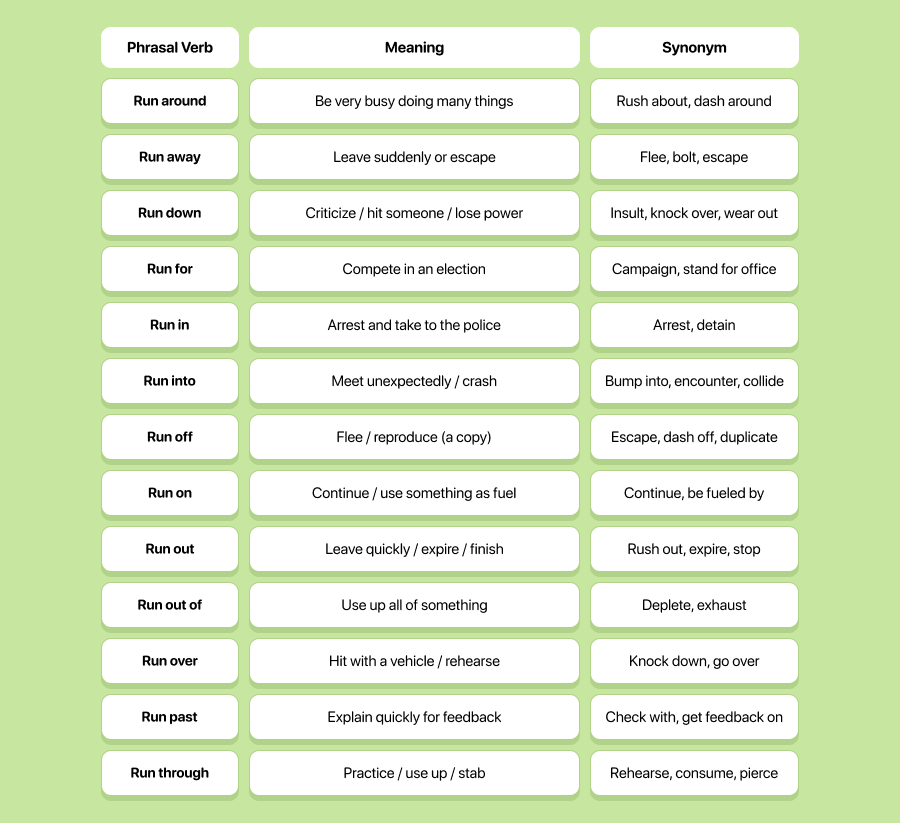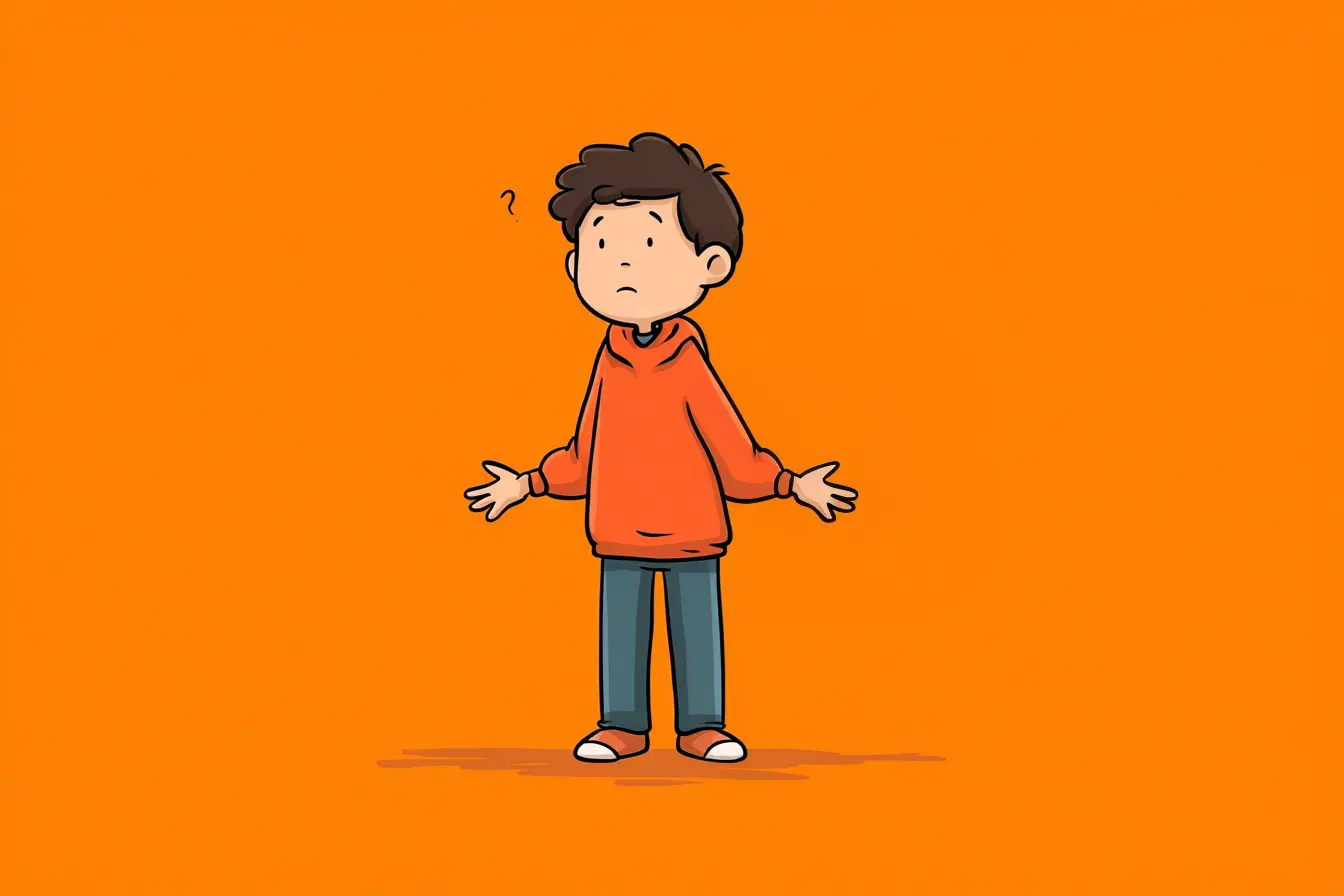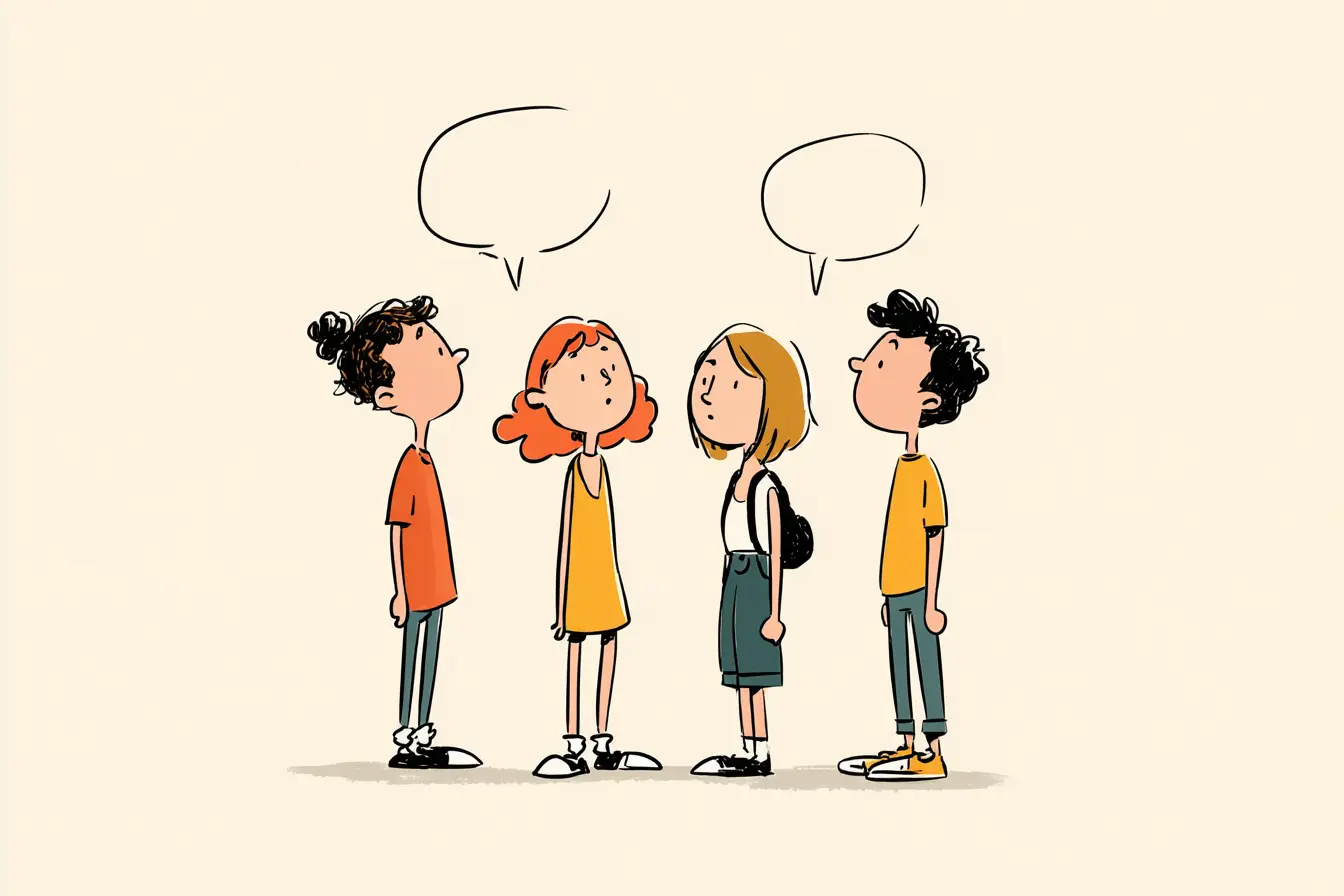If you feel like you're running in circles trying to understand English phrasal verbs, you're not alone. Today, we're diving into the most useful and expressive combinations of the verb “run”. These verbs pop up everywhere: in books, movies, conversations, even job interviews. And with their multiple meanings, they’re the perfect way to add life (and movement!) to your English.
Quick Reference: All the “Run” Phrasal Verbs at a Glance

Run Around
To run around means to be extremely busy, usually doing lots of errands or solving problems, often with a sense of stress or urgency. It can also refer to a child moving around a lot without sitting still.
“He ran around the corner and disappeared, leaving the old man to mutter to himself.” — Mark Twain, The Adventures of Tom Sawyer
Run Away
To run away is to flee or escape suddenly, often from home, danger, or responsibility. It's commonly used when talking about children or young people leaving home without permission.
“He made up his mind to run away that very night.” — Charles Dickens, Oliver Twist
Run Down
This phrasal verb has three common meanings. It can mean to insult or speak negatively about someone, to physically hit someone with a vehicle, or to describe something (or someone) that is slowly losing energy or power — like a battery, a person, or even a business.
“She was quite run down with the worry of it all.” — Jane Austen, Emma
Run For
When someone decides to run for a position, it means they are entering a competition, usually in politics, to be elected to a role such as mayor, president, or council member.
“I shall run for councilman and see if the people’s voice truly matters.” — From early American speeches
Run In
This old-fashioned expression means to arrest someone and take them to the police station. It's more common in literature or older crime stories.
“They ran him in before he could make it across the street.” — Arthur Conan Doyle, Sherlock Holmes
Run Into
Run into has two key meanings: to meet someone unexpectedly or to crash into someone or something. Both uses are common and often depend on the context.
“I ran into Laurie on the street today — quite the coincidence!” — Louisa May Alcott, Little Women
Run Off
This can mean to leave quickly, especially in a sneaky or irresponsible way, or to produce copies of something (e.g., documents or photos). Sometimes it also implies running away with someone or something.
“The horses ran off, startled by the sound.” — Bram Stoker, Dracula
Run On
To run on can describe something that continues for too long, like a speech or a conversation — or something that operates using a specific type of fuel or power source.
“The machine runs on simple steam power, nothing more.” — H.G. Wells, The Time Machine
Run Out
This versatile phrase can mean to leave a place quickly or to exhaust a supply of something. It’s often used when something comes to an end, like time or resources.
“She ran out of the room, her heart pounding.” — Emily Brontë, Wuthering Heights
Run Out Of
When you run out of something, you’ve used it all up and there’s none left, whether it's milk, money, patience, or ideas. It’s one of the most common expressions in daily English.
“We’ve run out of flour again, haven’t we?” — Louisa May Alcott, Little Women
Run Over
This has two different uses. Literally, it means to hit someone or something with a vehicle. Figuratively, it means to review or go over information again quickly.
“She feared the cart would run over her before she could move.” — Thomas Hardy, Tess of the d’Urbervilles
Run Past
To run past someone is to quickly explain an idea to get their feedback or approval. It’s often used in workplace or team conversations.
“You could pass any of John Sargeant’s pictures, for instance, at a speed limited only by your own powers of running; but you could never run past ‘Breaking Home Ties.’”— Owen Wister, Mother
Run Through
With run through, you can be talking about rehearsing something, using something up quickly (like money), or even stabbing someone through the body (in older or literary contexts).
“I’ll run him through if he dares speak her name again!” — William Shakespeare, Hamlet
These phrasal verbs can take you in all kinds of directions, literally and figuratively. Understanding how they’re used in context, especially in timeless books, makes them much easier to remember. Try spotting them in your next novel or using them in daily conversation. You’ll be surprised how naturally they start to flow.


















